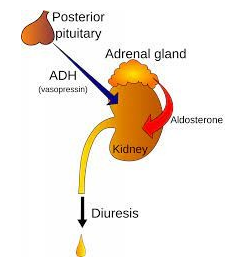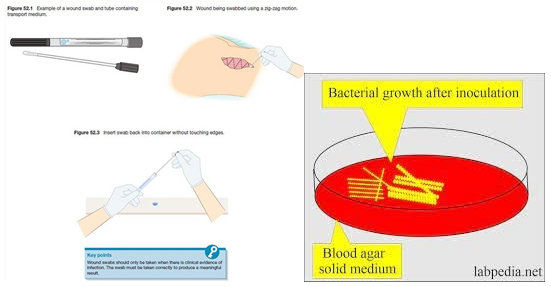When caring for a client with diabetes insipidus who is receiving antidiuretic hormone intranasally, which serum lab test is most important for the nurse to monitor?
Platelets
Glucose
Osmolality
Calcium
The Correct Answer is C
Diabetes insipidus is a condition in which the kidneys are unable to conserve water, leading to excessive thirst and urination. It is treated with antidiuretic hormone (ADH), which helps the kidneys retain water and reduce urine output. When caring for a client with diabetes insipidus who is receiving ADH intranasally, it is important for the nurse to monitor the client’s serum osmolality.
Osmolality is a measure of the concentration of particles in a solution and can provide information about the client’s hydration status.
Monitoring serum osmolality can help determine if the ADH therapy is effective in managing the client’s diabetes insipidus.

Nursing Test Bank
Naxlex Comprehensive Predictor Exams
Related Questions
Correct Answer is B
Explanation
Before administering the first dose of any antibiotic, it is essential to obtain a culture and sensitivity test to identify the causative organism and determine the most effective antibiotic to use. Administering a broad- spectrum antibiotic before obtaining a culture and sensitivity test may lead to the development of antibiotic-resistant strains of bacteria, making it more difficult to treat the infection in the future.
Options a, c, and d are not as important as obtaining a culture and sensitivity test. Monitoring for signs of sodium and fluid retention, irrigation and topical antibiotic application to the wound area, and completing blood count and serum electrolytes are important, but obtaining a culture and sensitivity test is the priority.

Correct Answer is D
Explanation
The client is experiencing syncope (fainting) due to a drop in blood pressure to 70/40 mm Hg, which is too low. This suggests that the client's blood pressure medications are reducing their blood pressure too much, resulting in hypotension. The rationale for the nurse's decision to hold the client's scheduled antihypertensive medications is to prevent further hypotension and allow the client's blood pressure to stabilize at a safer level.
Option a is incorrect because diuresis (increased urine output) is not a likely cause of the client's hypotension.
Option b is incorrect because the client's symptoms suggest hypotension due to reduced blood pressure, rather than drug toxicity.
Option c is incorrect because the antagonistic interaction among blood pressure medications would result in reduced effectiveness but would not necessarily cause hypotension.
Whether you are a student looking to ace your exams or a practicing nurse seeking to enhance your expertise , our nursing education contents will empower you with the confidence and competence to make a difference in the lives of patients and become a respected leader in the healthcare field.
Visit Naxlex, invest in your future and unlock endless possibilities with our unparalleled nursing education contents today
Report Wrong Answer on the Current Question
Do you disagree with the answer? If yes, what is your expected answer? Explain.
Kindly be descriptive with the issue you are facing.
